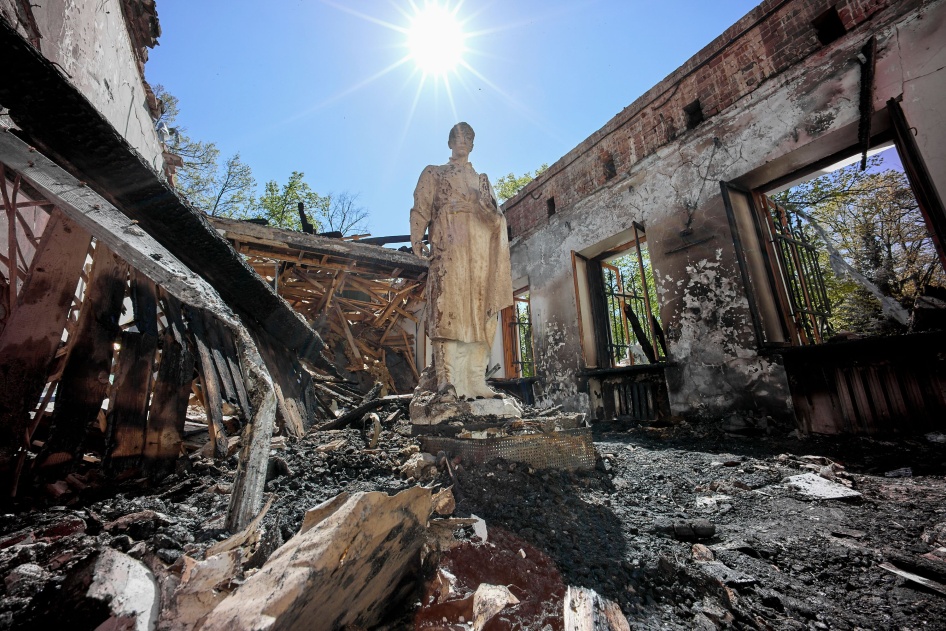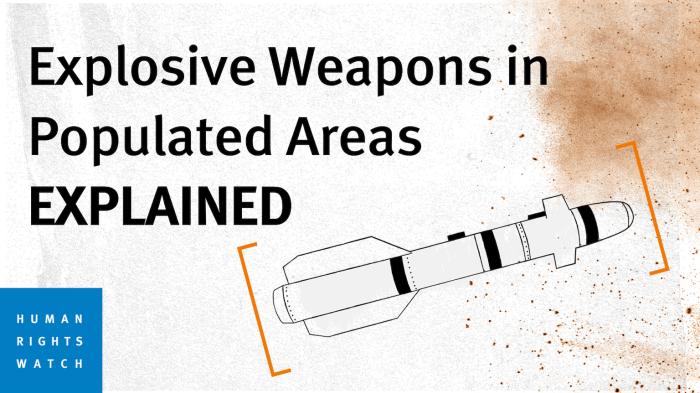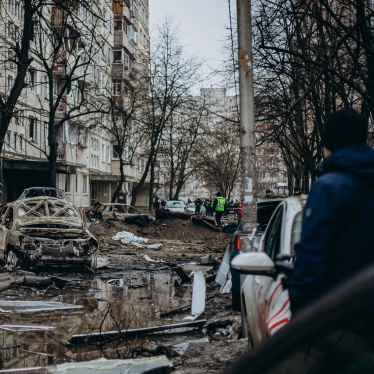(Oslo, April 18, 2024) – The bombing and shelling of cities and towns during armed conflict has devastating consequences for cultural heritage and civilians, Human Rights Watch and Harvard Law School’s International Human Rights Clinic said in a report released today. Minimizing this harm should be addressed at the first meeting of countries endorsing the 2022 Political Declaration on the Protection of Civilians from the Use of Explosive Weapons, which will be held in Oslo, Norway from April 22-24, 2024.
The 80-page report, “Destroying Cultural Heritage: Explosive Weapons’ Effects in Armed Conflict and Measures to Improve Protection,” details both the immediate and long-term harm from the use of explosive weapons in populated areas on cultural heritage, such as historic buildings and houses of worship, museums and archives, public squares, and performance centers. It shows that the Declaration on explosive weapons could serve as a valuable tool for addressing the problem.
“Governments should recognize that using explosive weapons in populated areas endangers cultural heritage as well as the people who cherish it,” said Bonnie Docherty, senior arms adviser at Human Rights Watch and a lecturer on law at the Harvard Clinic. “To preserve this heritage for future generations, parties to armed conflicts should abide by the 2022 Political Declaration and refrain from bombing and shelling populated urban areas.”
When used in populated areas, explosive weapons, such as aerial bombs, artillery projectiles, rockets, and missiles, kill and injure civilians and destroy civilian objects at the time of attack. These weapons also have long-term indirect, or “reverberating,” effects that aggravate civilian suffering. By harming cultural heritage, the weapons erase history, undermine community identity and unity, and have financial costs.
Human Rights Watch and the Harvard Clinic interviewed 17 experts and affected civilians, reviewed primary and secondary sources, and conducted legal analysis.
They examined Russia’s ongoing war in Ukraine to illustrate the vulnerability of cultural heritage to explosive weapons in populated areas. They surveyed five examples – including local museums and archives, cultural sites in urban centers, and places of worship – that highlight the frequency, diversity, and gravity of the effects of explosive weapons on cultural heritage, and why these effects matter to the civilian population.
The researchers also drew on examples from other armed conflicts, notably Gaza and Yemen, to differentiate and elaborate on the direct and indirect harm to places and people that this method of war causes.
“The use of explosive weapons causes heartbreaking loss to sites and objects that may be treasured locally or globally,” Docherty said. “The damage also strikes at the heart of a nation’s people, who expect to pass their cultural heritage from one generation to the next.”
Since November 18, 2022, 86 countries have endorsed the Declaration, which sets standards for preventing and remediating the effects of the use of explosive weapons in populated areas.
Countries should interpret the Declaration and put it into practice to maximize the protection of cultural heritage, Human Rights Watch and the Harvard Clinic said. In addition to avoiding the use of explosive weapons in populated areas, countries should, for example, train soldiers to recognize and understand the significance of local cultural heritage, collect and share data related to cultural heritage damage, and allow preservation experts immediate access to affected sites.
By taking such steps, parties to armed conflicts can bolster safeguards for cultural heritage laid out in existing international law. In practice, these steps can better protect both cultural heritage and civilians.
“Countries should join the Declaration on explosive weapons and use it to maximize its humanitarian impact,” Docherty said. “By implementing its protections for cultural heritage, countries will also benefit civilians and hopefully reduce the long-term horrors of war.”











